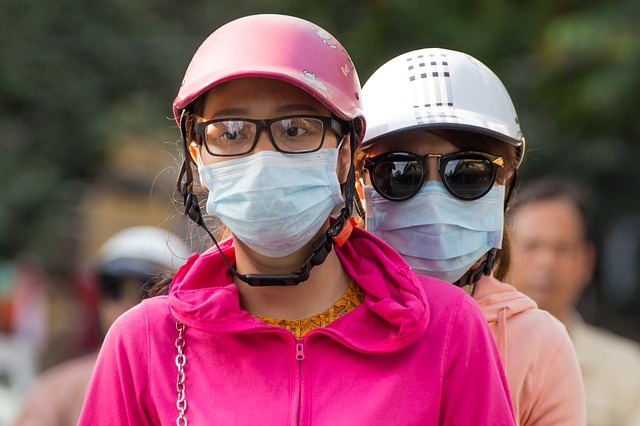How often do we hear that the epicenter of a pandemic is becoming a safe haven that everyone wishes to flock to? This seems to be true in China's case. From one of its most populous cities— Wuhan in the Hubei province—being declared the epicenter of the coronavirus outbreak nearly three months ago to gradually returning to normal life, the Xi Jinping-led country has come a long way. However, the rest of the world is struggling to contain the virus' onslaught and China seems to be the safest place in the midst of the growing COVID-19 pandemic.
According to the country's National Health Commission, only 21 new cases were reported in Mainland China on Monday. This is a departure from the confirmation of hundreds of new cases every day a few months ago. On Friday, Tedros Adhanom Ghebreyesus, Director-General, WHO, said: "More cases are now being reported every day than were reported in China at the height of its epidemic." He also announced that Europe was the new epicenter of the disease.

Chinese living abroad want to head back home
With the state's handling of the coronavirus outbreak coming under fire and the number of cases rapidly marching towards the 7,000 mark in the US, Chinese citizens want to head to the safety of their homes.
"China has already contained the situation and there are no new domestic cases in Beijing, but I think the number of people with the virus in the United States is going to rise exponentially," Jane Zhang told The Washington Post. The 19-year-old New York University student left for home last Friday as the number of cases in the US state of New York rose by 30 percent overnight.
A similar sentiment is echoing among Chinese living in the United Kingdom. Much like the Trump administration's alleged mismanagement of the outbreak in the US, Prime Minister Boris Johnson has also been criticized for not taking adequate measures to contain the spread of the disease. The number of cases in the UK has surged to nearly 2,000 and the number deaths stand at 55. Jennie Lan, a graduate student at University College London, also decided to go back home to China. Opining that the British did not take the viral outbreak seriously, she added: "The local government controlled it well," according to the Wall Street Journal.

While the world shuts down China reboots
Several companies that had ceased operations in China due to the coronavirus outbreak are now returning to business as usual. Apple Inc., which had shut its stores in the country, is now reopening them, while closing stores in other parts of the world for the next two weeks. With necessary measures in place, the China office of Legendary Entertainment is reportedly back in action.
On the domestic front, many schools have reopened in several parts of China. Business establishments such as restaurants, despite struggling for business, are operational in prominent cities such as Beijing and Shanghai. According to Al Jazeera, cities such as Guangzhou and Shenzhen — where the country's manufacturing industry is concentrated — are working towards the transition of employees back to work and resuming suspended business activities.
Xinhua, recently reported that conditions in the hard-hit Hubei province have improved to such an extent, that medical assistance teams—comprising of 3,675 members—are leaving the region in batches as the epidemic is said to have been subdued in the province. "Wuhan people have acted bravely. I hope life here will return to normal as soon as possible, and the city will become more and more beautiful," said Cui Yaqing, a team member. Medical teams in the neighbouring province of Hunan is also set to follow suit.
Imported infections the new concern for China
From its citizens being subjected to quarantine and travel bans imposed against it to isolating foreign arrivals, China has seen a flip in positions. According to Chinese state media, every day, nearly 20,000 people are arriving by air in China, with five times more arriving by sea or land. With people rushing to the country to escape the COVID-19 outbreak elsewhere, China now deals with a new problem — imported infections.

On Tuesday, China's National Health Commission said that of the 21 news cases reported, 20 were imported cases. Provinces such as Guangxi, Guangdong, Shandong, Shaanxi, Yunnan and Zhejiang, have reported imported cases, mostly from Italy and Iran, bringing the total to 143 in mainland China. Stressing on the importance of curbing the possibility of a second wave of infections, Wang Jun, an official with the General Administration of Customs, told reporters recently: "Preventing imported cases has become a key task of China's epidemic prevention and control work. We must resolutely curb the spread across the border."
Worldwide tally of cases and casualties overtakes China's
Looking at the sheer numbers of cases globally, it is evident that Ghebreyesus's statement reflects a frightful truth. So far, over 198,000 cases and nearly 8,000 cases have been reported worldwide. However, the combined total of confirmed infections from over 150 countries has overtaken that of China, with Europe reporting thousands of new cases by the day. Currently, China has over 81,000 cases and almost 3,200 deaths.
In contrast, Iran, Italy and Spain alone have collectively reported close to 60,000 confirmed cases and more than 4,000 casualties. With the number of new cases showing no signs of slowing down, several countries have declared national emergencies and imposed lockdowns. China, on the other hand, is relaxing stringent restrictions that helped it contain the disease within its borders.









